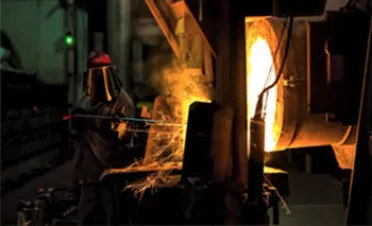machining and manufacturing
Machining and Manufacturing The Art and Science of Precision Engineering
Machining and manufacturing are essential pillars of modern industry, playing a crucial role in the production of a vast array of components and products. From aerospace to automotive, and from medical devices to consumer electronics, the intricate processes of machining define the performance and quality of the items we rely on daily.
What is Machining?
Machining is a subtractive manufacturing process that involves removing material from a workpiece to shape it into a desired configuration. Typically, this is achieved using machine tools such as lathes, mills, and CNC (Computer Numerical Control) machines. The precision offered by machining allows for the creation of intricate designs and complex geometries, which are integral to high-performance products.
There are various machining operations, including turning, milling, drilling, and grinding. Each offers unique capabilities and is suited to different types of materials, including metals, plastics, and composites. For example, CNC machining has revolutionized the industry by enabling automated processes that enhance accuracy and repeatability while reducing production time and costs.
The Manufacturing Process
Manufacturing, on the other hand, encompasses a broader scope, involving the complete creation of products from raw materials. It includes not just machining, but also processes like casting, forging, welding, and additive manufacturing (3D printing). The efficiency and effectiveness of manufacturing processes depend on careful planning, resource management, and quality control.
In the context of manufacturing, machining is often part of a larger production cycle. For instance, a component might first be forged into a rough shape and then undergo machining to achieve the specific tolerances required for its application. This collaboration between various processes underscores the importance of integration in manufacturing systems.
machining and manufacturing

Advances in Technology
The evolution of technology has significantly impacted machining and manufacturing. The introduction of digital tools, automation, and advanced materials have transformed traditional practices. For example, Industry 4.0, which refers to the fourth industrial revolution, emphasizes smart manufacturing enabled by the Internet of Things (IoT), artificial intelligence (AI), and data analytics.
Smart machines can monitor performance in real-time, predict maintenance needs, and optimize operations with minimal human intervention
. This digital shift not only improves productivity but also enhances precision, minimizes waste, and makes the manufacturing process more sustainable.Challenges and Considerations
Despite its advancements, the machining and manufacturing industry faces numerous challenges. The rise of global competition puts pressure on manufacturers to reduce costs while enhancing quality. Moreover, the growing emphasis on sustainability is prompting companies to adopt eco-friendly practices and materials, necessitating the development of greener machining techniques.
Additionally, the skills gap in the workforce poses a significant challenge. As technologies evolve, the need for a skilled workforce adept in advanced machining and manufacturing techniques becomes increasingly critical. Educational institutions and industry leaders must collaborate to ensure that the next generation of workers is equipped with the right skills to navigate this dynamic landscape.
Conclusion
In conclusion, machining and manufacturing remain central to the fabric of modern industry. As technology continues to advance, these processes will become even more sophisticated and efficient, enabling the production of high-quality products that meet consumers’ ever-growing demands. Embracing innovation while addressing the associated challenges will be key to the future success of the machining and manufacturing sectors, ultimately driving progress across various industries. The synergy of art and science in these fields not only shapes the products of today but also paves the way for the innovations of tomorrow.
-
Aluminium Pressure Die Casting High-Precision & Durable Solutions for Complex PartsNewsJul.08,2025
-
Top Aluminum Sand Castings Manufacturer – Precision Green Sand Castings for Industrial NeedsNewsJul.08,2025
-
Precision Lost Wax Casting Quotes – High Accuracy Custom Parts Lost Wax Precision Casting ServicesNewsJul.07,2025
-
High-Quality Sand Used for Casting - Superior Sand for Sand Casting ProcessesNewsJul.07,2025
-
China Supply High End Metal Stamping Parts Sino - Precision Manufacturing FactoryNewsJul.06,2025
-
High-Quality Automotive Investment Casting Services Precision & Sand Casting SolutionsNewsJul.06,2025















